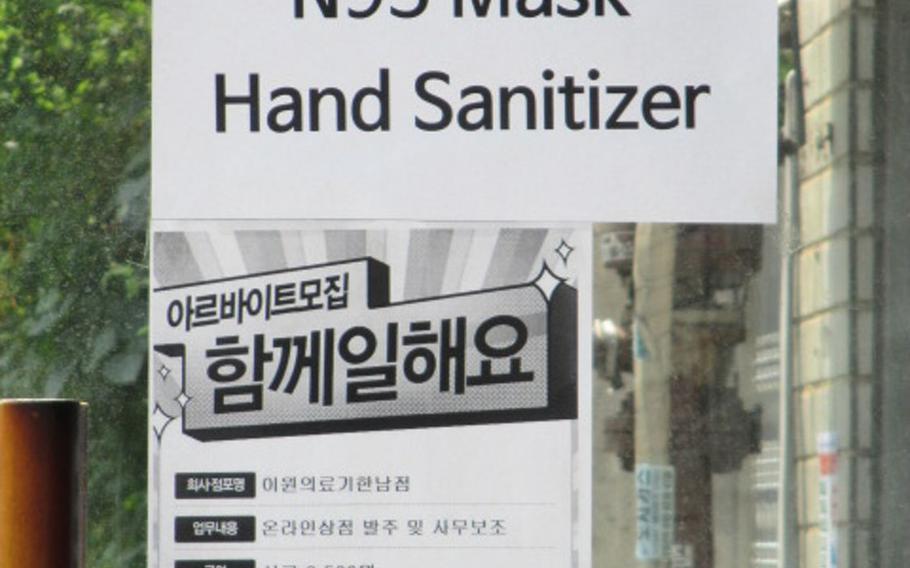
A sign outside a medical supplies store in June 2015 in Seoul, South Korea, advertises face masks and hand sanitizer to help prevent the spread of the potentially deadly Middle East Respiratory Syndrome, which has infected some 150 people on the peninsula in a month. (Ashley Rowland/Stars and Stripes)
SEOUL, South Korea — Two U.S. military families in Seoul were released from quarantine Wednesday after testing negative for Middle East Respiratory Syndrome, a virus that has killed 27 South Koreans over the past month.
U.S. Army Garrison Yongsan described the quarantine as a precautionary measure in a Facebook post Tuesday. The families, who had been under medical supervision since last week in line with South Korean government guidelines, were described as asymptomatic and not contagious.
Each family had a member who was treated at an off-post hospital affected by the MERS outbreak. The families were quarantined from the time of potential exposure.
No other U.S. Forces Korea families or individuals are under quarantine for the virus, the Facebook post said.
As of Wednesday, 179 people have been diagnosed with MERS and about 3,100 are under quarantine, according to South Korea’s Ministry of Health and Welfare. The respiratory virus is characterized by fever, cough and shortness of breath, and carries a 30 percent to 40 percent death rate. No vaccine or specific treatment is available.
A ministry spokesman said the pace of infections appears to be slowing, and the number of MERS patients at two hospitals where a number of infections have been linked — Samsung Medical Center in Seoul and St. Mary’s Hospital in Pyeongtaek — is decreasing.
The outbreak prompted thousands of South Korean schools to close earlier this month, though most have reopened. A number of hospitals, including Samsung, which is frequently used by USFK personnel, have suspended services to control spread of the disease.
USFK has directed troops, civilians and family members to contact their chain of command and health care providers before completing off-installation hospital referrals. USFK commander Gen. Curtis Scaparrotti has also directed first-line military leaders to conduct unit screenings for the disease and to make sure all troops are informed of precautionary measures.
Stars and Stripes’ Yoo Kyong Chang contributed to this story.